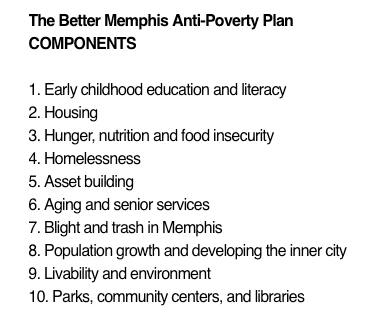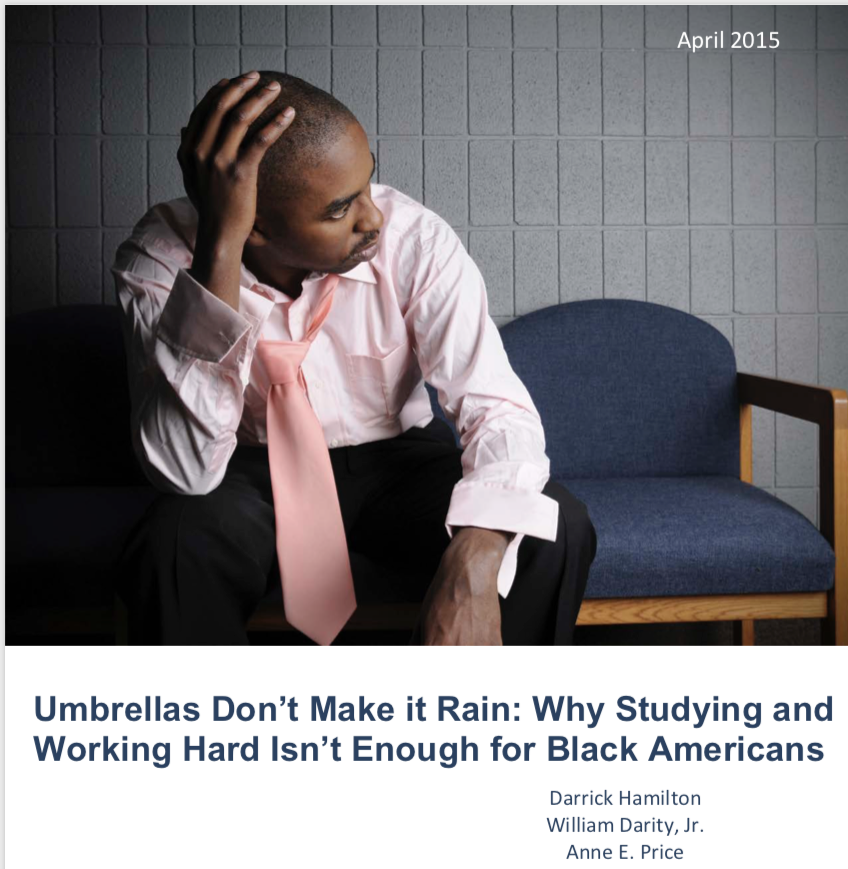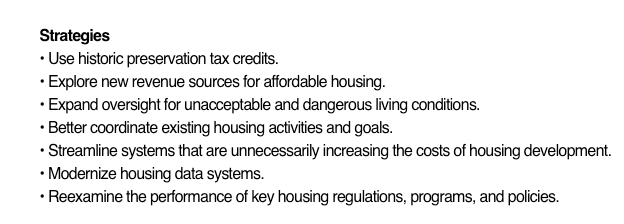Yeah, I'm going to have to push back on this.
The solution to poverty is... wait for it... More money.
Virtually nothing in @MayorMemphis plan directly addresses how little $$$ low-income families have.
And census data refutes his rosy picture.
Walk with me. A THREAD. https://twitter.com/MayorMemphis/status/1291823314550296576
The solution to poverty is... wait for it... More money.
Virtually nothing in @MayorMemphis plan directly addresses how little $$$ low-income families have.
And census data refutes his rosy picture.
Walk with me. A THREAD. https://twitter.com/MayorMemphis/status/1291823314550296576
First, Census data. Strickland took office in 2016. If you compare the city's 2015 poverty rate to 2018, the most recent year for which data is available, the news is not good (unless you're white).
Overall: Up 1.6% points
Black: Up 3.8%
Under 18: Up 1.9%
White: Down 1.2%
Overall: Up 1.6% points
Black: Up 3.8%
Under 18: Up 1.9%
White: Down 1.2%
You might be thinking: Now, Wendi, it's not fair to start in 2015.
OK, let's compare the city's 2016 poverty rates to 2018.
Overall: Up .9% points
Black: Up 1.5%
Under 18: Up .2%
White: Down 1.5%
OK, let's compare the city's 2016 poverty rates to 2018.
Overall: Up .9% points
Black: Up 1.5%
Under 18: Up .2%
White: Down 1.5%
The city's poverty rate dropped for all groups between 2016 & 2017.
Which is good, except it was an anomaly.
From 2017-2018:
Overall: Up 3.2% points
Black: Up 4.9%
Under 18: Up 5.9%
White: Up .5%
Which is good, except it was an anomaly.
From 2017-2018:
Overall: Up 3.2% points
Black: Up 4.9%
Under 18: Up 5.9%
White: Up .5%
Except for the blip of 2017, the overall poverty rate, the poverty rate for children and for Black residents has been worse since Strickland has been mayor.
But to be fair...
But to be fair...
He's just a mayor. He can't be held responsible for national and global forces that affect poverty rates.
There's only so much he can do - which is why it's so disappointing that his anti-poverty plan dances around GETTING MORE MONEY IN PEOPLE'S POCKETS ASAP.
There's only so much he can do - which is why it's so disappointing that his anti-poverty plan dances around GETTING MORE MONEY IN PEOPLE'S POCKETS ASAP.
The mayor's Better Memphis Anti-Poverty Plan doesn't directly increase household income or wealth. To pretend it does is disingenuous at best and willfully deceptive at worst.
When you don't ask the right questions, you celebrate the wrong things. https://www.memphistn.gov/news/what_s_new/better_memphis__anti-_poverty_plan
When you don't ask the right questions, you celebrate the wrong things. https://www.memphistn.gov/news/what_s_new/better_memphis__anti-_poverty_plan
1. Early childhood education and adult literacy programs do not necessarily increase household income or wages because... "Umbrellas Don't Make It Rain: Why Studying and Working Hard Isn’t Enough for Black Americans" by @SandyDarity and @DarrickHamilton
From the 2018 Poverty Report @ElenaDelavega7: "The relationship between the incomes of African Americans and whites remains stable, regardless of gains in education and employment."
Since the 60s, Black household income in Shelby County is consistently 1/2 that of whites.
Since the 60s, Black household income in Shelby County is consistently 1/2 that of whites.
2. Housing. These wiggly verbs are a trip.
"Explore," "streamline," "modernize," and "re-examine" - none of that puts money in folks' pockets now.
"Explore," "streamline," "modernize," and "re-examine" - none of that puts money in folks' pockets now.
Last year Charlotte allocated $12.8M from its housing trust fund to affordable housing.
Strickland's poverty plan brags about putting $900K in Memphis' housing trust fund.
Sir.
Strickland's poverty plan brags about putting $900K in Memphis' housing trust fund.
Sir.
3. Hunger, nutrition and food insecurity.
Let's look at what counts as creating more jobs, shall we?
Let's look at what counts as creating more jobs, shall we?
"Prior to the COVID-19 pandemic, our city was experiencing billions in private sector investment, An historically low unemployment rates, and over 20,000 more Memphians working than when we took office in 2016."
That private investment is mostly building projects.
That private investment is mostly building projects.
Those projects do not necessarily translate to high-wage jobs, and especially not for the PEOPLE WHO ALREADY LIVE IN MEMPHIS.
Pricey apartments and hotels = maintenance workers and housekeepers and places 1 in 4 Memphians and 1 in 3 black Memphians can't enjoy.
Pricey apartments and hotels = maintenance workers and housekeepers and places 1 in 4 Memphians and 1 in 3 black Memphians can't enjoy.
4. Homelessness.
"Work with" and "pursue" aren't anti-poverty strategies. And the "Work Local" that hires panhandlers for $9/hour, or $45/day to pick up trash isn't either.
It's telling who we think deserves a livable wage and who deserves not much over minimum wage.
"Work with" and "pursue" aren't anti-poverty strategies. And the "Work Local" that hires panhandlers for $9/hour, or $45/day to pick up trash isn't either.
It's telling who we think deserves a livable wage and who deserves not much over minimum wage.
This might be my favorite:
5. Asset building, also known as "Let's play like people are poor because they just can't balance their checkbooks!"
More verbs from a "strong action verbs for your resume" website.
Promote. Educate. Bring in.
5. Asset building, also known as "Let's play like people are poor because they just can't balance their checkbooks!"
More verbs from a "strong action verbs for your resume" website.
Promote. Educate. Bring in.
I'm not saying that learning how to avoid payday loans isn't valuable advice. But that assumes that people struggling to make ends meet actually have other viable, non-predatory options and they chose the exploitative one.
If you need to hold $200 until payday, where do you go?
If you need to hold $200 until payday, where do you go?
Getting a checking account is great. Having money to put in it, even better.
Most people make their money through their jobs. And too many jobs in Memphis, America's distribution center, pay poverty wages.
Nothing in this plan addresses that.
Most people make their money through their jobs. And too many jobs in Memphis, America's distribution center, pay poverty wages.
Nothing in this plan addresses that.
6-10 are the same thing.
6. Aging and senior services doesn't have its own section with bullet points.
7. Blight and trash: Picking up garbage is important, but not an anti-poverty strategy.
8. Pop growth/living in the inner city (gentrification and displacement)
6. Aging and senior services doesn't have its own section with bullet points.
7. Blight and trash: Picking up garbage is important, but not an anti-poverty strategy.
8. Pop growth/living in the inner city (gentrification and displacement)
9. Livability - waste audits, recycling challenges, reducing food waste, walkability toolkits - all great, none of them make people less poor today (or tomorrow or in the near future). Might it attract more jobs? Maybe, but will they be living/thriving wage jobs? Who knows?
10. Parks, community centers and libraries:
If you don't have Internet access at home or a smart phone, using a library computer could help you get a better paying job. (I love libraries and Memphis Central was a favorite place pre-covid.)
If you don't have Internet access at home or a smart phone, using a library computer could help you get a better paying job. (I love libraries and Memphis Central was a favorite place pre-covid.)
But Adopt-A-Park programs? That's not anti-poverty!
And reducing crime by improving the physical environment? We still doing that broken windows policing?
And reducing crime by improving the physical environment? We still doing that broken windows policing?
None of these efforts taken alone are bad.
Collectively, they're not bad.
And I'm certain they're well intentioned and lots of smart, good people are working hard.
But we cannot accept this as an anti-poverty strategy.
Because it isn't.
Collectively, they're not bad.
And I'm certain they're well intentioned and lots of smart, good people are working hard.
But we cannot accept this as an anti-poverty strategy.
Because it isn't.

 Read on Twitter
Read on Twitter









